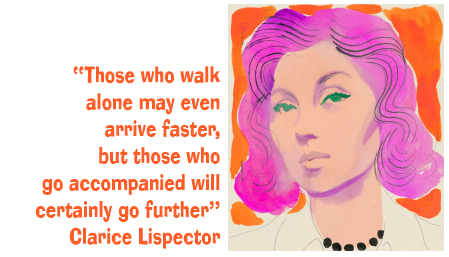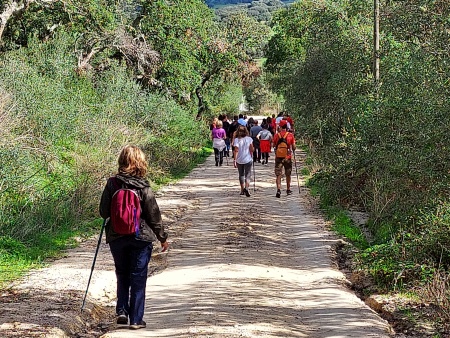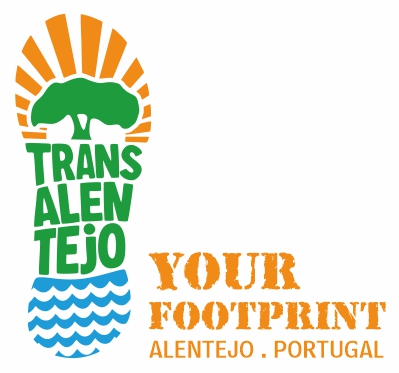 |
|
Sustainability
The
TransAlentejo Walking Trails Network considers as its structuring
objective to be aligned with the SDGs Sustainable Development
Goals proposed in 2015 by the United Nations.
There is a permanent search for the creation of a tourism
product to be in line with the ESG Sustainability Policy,
which seeks to balance its three pillars:
- Environmental Sustainability
- Economic and Social Development
- Collective and Integrated Governance

The
challenge is enormous for a type of structure that is
not a touristic acommodation, an entertainment activities
company or a well-defined physical space.
However, when structuring a tourism product associated
with a territory, it is essential to take into account
all sustainability policies in all areas of implementation. |
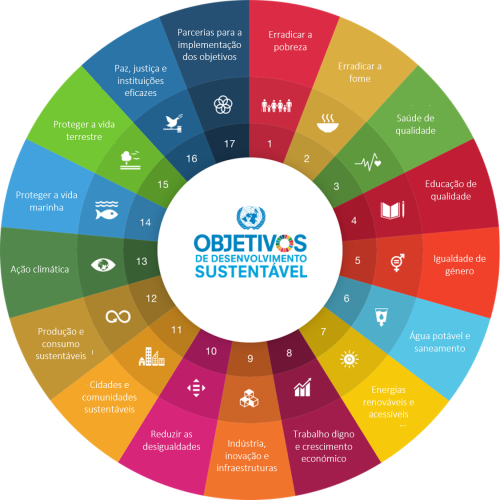
Portugal invests in SDGs 4, 5, 9, 10, 13 and 14
its strategic priorities in implementing
of the 2030 Agenda for Sustainable Development. |
The TransAlentejo Walking Trails Network seeks to ensure that
its structuring, usage objectives, development of activities,
training of human resources, partnerships, management protocols,
promotional events, editing of communication materials, institutional
image and public promotion are aligned with all Sustainable
Development Goals
Sustainable Development Goals for 2030
(United Nations in 2015) in the TransAlentejo network:
| 1
- Eradicate Poverty
A key issue in all sectors of society, the TransAlentejo
project is attentive to contributing to the dissemination
of good governance practices in order to join global
efforts towards this objective.
2 - Eradicate Hunger
It has not yet been possible to integrate this objective
into the TransAlentejo project, but the collection of
food items at promotional events is planned to try to
mitigate the problem, through local solidarity organizations.
3 - Quality Healthcare
Creating a well-structured and safe network of trails
is essential for walking, the healthiest activity for
preserving health and well-being.
|
|
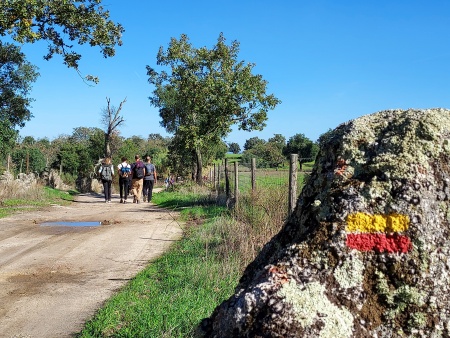 |
4
- Quality Education
Taking a walking tour is, above all, the discovery
of a territory and its values. The TransAlentejo network
is based on trails with the maximum number of points of
interest, duly identified, marked and described. The project
has a permanent dynamic of training and training assets
at a territorial level.
5 - Gender Equality
An objective perfectly achieved at all stages
of the TransAlentejo project.
6 - Drinking Water and Sanitation
Not using plastics in signage prevents the proliferation
of micro-plastics in cold water. |
7
- Renewable and Accessible Energy
Not applicable to the TransAlentejo project.
8 - Decent Work and Economic Growth
The TransAlentejo network seeks to provide the
Alentejo territory with a new tourist product, capable
of generating new quality jobs in the area of infrastructure
and tourist entertainment, as well as increasing tourist
offers for accommodation and the rest of the tourism sector.
9 - Industry, Innovation and Infrastructure
Not applicable to the TransAlentejo project.
|
|
 |
10
- Reducing Inequalities
The entire territory of Alentejo is considered inland
and only represents around 5% of tourism in Portugal,
so new products are essential to reduce inequality between
Portugal's major tourist destinations.
11 - Sustainable Cities and Communities
A good network of trails provides better healthy
leisure options.
12 - Sustainable Production and Consumption
At TransAlentejo events, organizers are not authorized
to distribute disposable water bottles, plastic bags,
packaged fruits, processed foods, t-shirts and other
items of clothing, cloth bags and disposable advertising
gifts. |
| 13
- Climate Action
Hiking has no or minimized impact on the climate. Promotional
actions involving travel, particularly by plane, must
be duly evaluated and mitigation measures taken.
14 - Protecting Aquatic Life - Marine and River
Not using plastics in signage on the TransAlentejo
network prevents the proliferation of micro-plastics
in rivers, streams and marine areas.
15 - Protecting Life on Earth
Hiking activities in the TransAlentejo network seek
not to negatively impact the terrestrial lives of people,
domestic animals, production animals and wildlife. The
introduction of Environmental Education dynamics is
essential for the training of users of walking routes. |
|
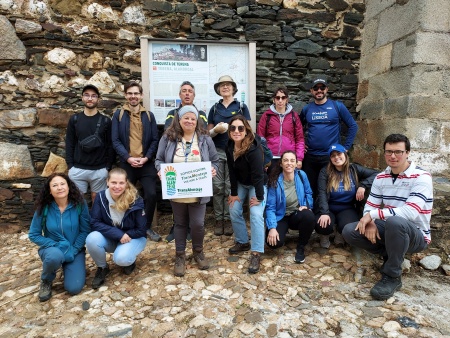 |
16
- Peace, Justice and Effective Institutions
The work of training and motivating development agents
- mayors, regional and local decision-makers, tourism
technicians and others, security forces, association leaders
and the population - is a constant activity of the TransAlentejo
network, seeking greater justice and efficiency in decisions
decision-making process and in pursuit of the objective.
17 - Partnerships for Implementation of Objectives
The TransAlentejo project is a collaborative network of
tourism and regional and local development. It involves
the promoting and coordinating entity - Turismo do Alentejo
ERT - and all municipalities in Alentejo, to which Parish
Councils, Local Associations, Tourism Companies, Tourism
Schools and local populations have been added, in a collective
governance regime. |
|




